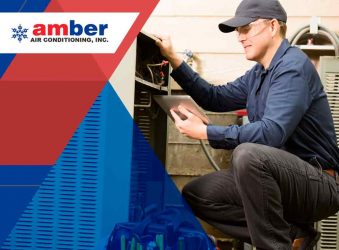Proper maintenance is a non-negotiable requirement for air conditioner longevity. As a responsible homeowner, you ought to know what it would take to make your system last for as long as possible. To give your air conditioning the care it needs, keep these items in mind. Regular Component Replacement Observing routine tune-ups is one way to satisfy your unit’s air conditioning repair needs. Even air conditioning components of high-quality need care and attention to perform as expected. You have to change air filters regularly and evaporator and condenser coils need annual cleaning. When it comes to the condensate drain, be on the lookout for debris or dirt buildup to prevent moisture accumulation. Condenser Protection The benefit of fencing your split air conditioning outdoor unit goes beyond quieting its loud operation. Although it’s built to withstand most of whatever nature could throw at it, it can’t protect itself from debris and wildlife on its own. Barricading […]
4 Wise Ways to Reduce Energy Use This Summer
Most homeowners wish for lower energy bills during summer, yet many don’t do what’s necessary to actually make a difference. To keep more dollars in your pocket without sacrificing your level of comfort indoors, Amber Air Conditioning Inc. recommends the following: 1. Get an ENERGY STAR®-Certified System Like other machines, HVAC units underperform when they get old. Proper maintenance can only help your equipment reach its expected lifespan, but it can’t serve as the fountain of youth forever. If your air conditioner is about 15 years old, consider getting a replacement. Invest in a product that bears the ENERGY STAR symbol. This label is a vote of confidence from the government, ensuring that the unit meets the latest energy efficiency standards. 2. Improve Current Unit’s Efficiency If your AC isn’t past its prime yet, have it routinely checked. Key components, such as filters and coils, need regular tune-ups to keep the entire system in tip-top […]
How to Find the Right Size of Air Conditioner for a Room
Finding the right size air conditioner for your home’s heating and cooling needs is all about finding a system that is not too big, but also not too small. Let our experts at Amber Air Conditioning Inc. walk you through the process of sizing your air conditioner that makes your home feel just right.
The Many Merits of Scheduling HVAC Maintenance During Spring
Getting your heating and air conditioning systems professionally inspected at least once a year is essential. However, timing is paramount. Of all the seasons, spring is perhaps the best time to give your HVAC units some extra care.
The Main Types of Air Conditioning Units
When it comes to residential air conditioning options, there are so many different types that it can be a little intimidating to start shopping around. This is even worse when you don’t know the first thing about HVAC systems.












